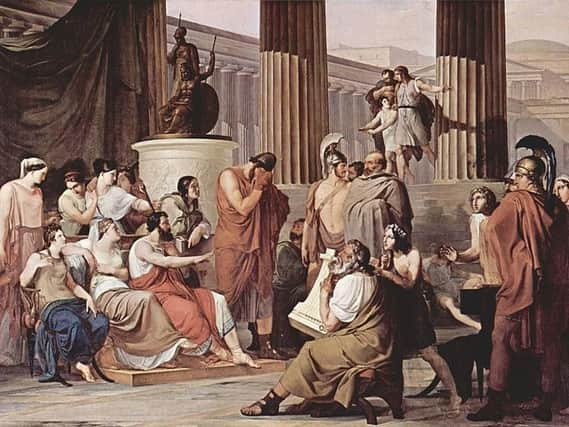Classical Chat: Inspiration from ancient times is no myth


There is one particular group of stories that have obsessed musicians for much longer, though: the tales of mythology.
Related: Sounds like folk tales and legendsWriters have been penning classical music based on Greek and Roman sources for centuries.
Advertisement
Hide AdAdvertisement
Hide AdThe very first operatic masterpiece, Monteverdi’s Orfeo, took the Greek story of Orpheus as its tale.
Indeed, until the time of Mozart mythology was practically the only kind of tale depicted on the operatic stage.
It’s not just music drama that has returned to these tales time and time again, with the 2,000-year-old sources providing a backdrop for everything from ballets to concert hall pieces.
Here are just a few works which transport everyone on a trip back in time:
Advertisement
Hide AdAdvertisement
Hide AdPurcell: Dido and Aeneas. England’s finest Baroque composer turns Virgil’s tragic tale of the founder of Rome and his lover from Carthage into a perfect hour on the opera stage.
Mozart: Symphony no. 41 (Jupiter). The leader of the Roman pantheon is the subject of Mozart’s final symphony, combining nobility with intricate complexity.
Ravel: Daphnis and Chloe. This masterful ballet tells the tale of the love of a goatherd and shepherdess and is full of vivid and beautiful music.
Sibelius: Oceanides. The Finnish master’s only departure from Scandinavian sources into the Classical world, this tone poem magnificently conjures up the waters where the title’s sea-nymphs live.
Advertisement
Hide AdAdvertisement
Hide AdBirtwistle: Panic. Few modern composers have drawn on mythology as much as Birtwistle. The most impressive example is his vast opera The Mask of Orpheus but a (slightly) more accessible way in is this notorious concerto for saxophone. Its title refers to things associated with the god Pan. Of course.